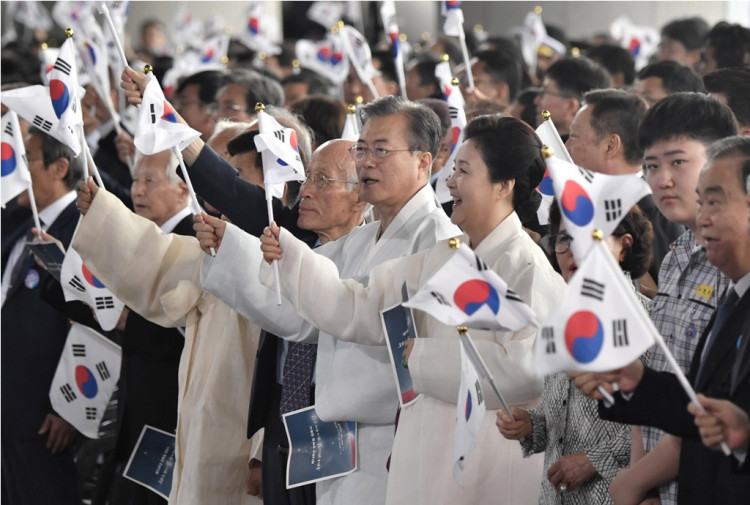South Korea's export-oriented economy, Asia's fourth-largest, saw growth inch forward at a much weaker pace than expected in the third quarter despite the government's $5 billion stimulus spending.
Any recovery in the traditionally strong fourth quarter is now being ruled out despite a slight recovery in exports because of a stubborn spending slump and the tidal wave effect from Trump's trade war against China. Private consumption grew just 0.1% in Q3.
South Korea's economy might have expanded a scant 0.4% during the July-September period quarter-on-quarter, according to advance estimates from the Bank of Korea, the country's central bank. The meager 0.4% growth is down from a 1.0% uptick in Q2 and was a mite short of the 0.5% gain forecast in a Reuters survey of 26 economists.
In contrast, the International Monetary Fund (IMF) estimates the country's growth might decelerate to 2% this year and 2.2% in 2020. Both estimates are 0.6% lower than predicted.
Exports did better than expected, increasing 4.1% in Q3 after a 2.0% gain in Q2. This improvement reversed a successive series of contractions in the previous two quarters.
The good news is that exports, the most important driver of growth, now seem to have surmounted a slump. Economic experts said more policy support from the government is needed to ensure the export recovery extends well into 2020.
The policy support this year included an extra $5 billion in stimulus spending and the Bank of Korea slashing policy interest rate twice in three months to 1.25%. This matched a record low not seen since late 2017.
The Bank of Korea will likely agree to further easing but not within the year. The bank's next policy meeting is on Nov. 29. Support from the bank will also be needed to shore up the country's exports, which are still on a shaky road to recovery.
On Tuesday, President Moon Jae-in urged the National Assembly to approve his administration's budget bill for 2020 that proposes a 9.3% increase in spending from 2019. Moon now wants fiscal policy to play the leading role in economic growth.
"The global economy has worsened rapidly, and our economy, heavily trade-dependent, is also in a grave situation," said Moon.
South Korea's economy, hugely dependent on foreign trade, has been among the worst-hit by the global economic slowdown triggered by Trump's tariff war. Unresolved trade tensions also disrupted world supply chains and battered business confidence while shrinking investments. A stubborn trade spat with Japan has also dented South Korean exports to this major trading partner.
"Exports appear headed for recovery from early next year but the economy needs more policy support, including more rate cuts as domestic demand remains very weak," said Oh Chang-sob, an economist at Hyundai Motor Securities.






